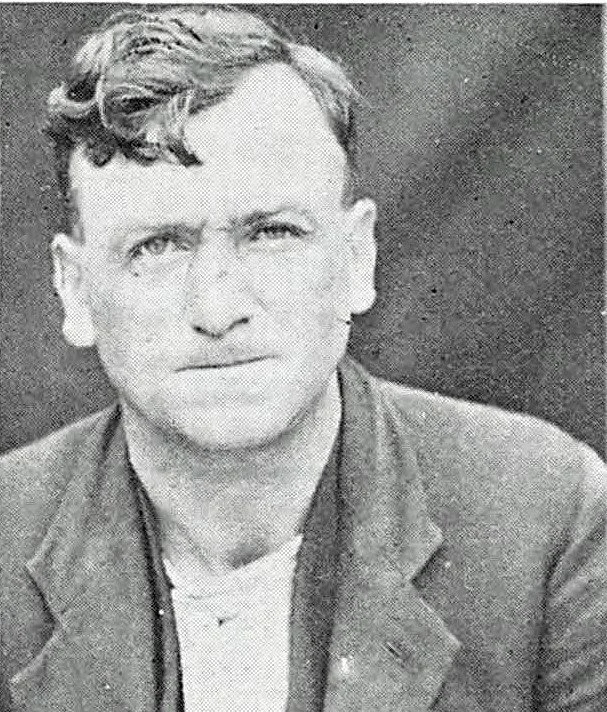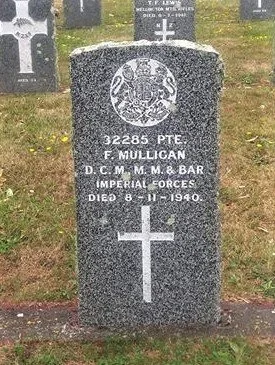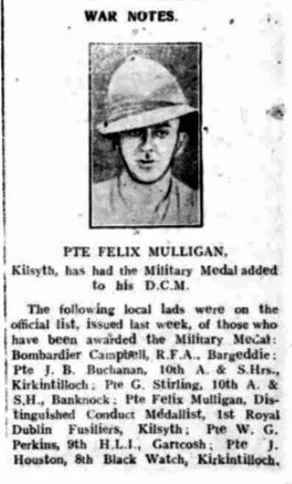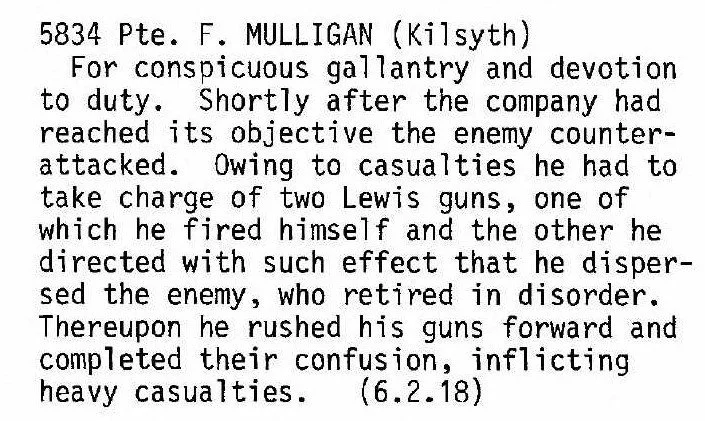SERIES 1: Private Felix Mulligan 5834 / 32285
1st Royal Dublin Fusiliers
SERIES 1: Private Felix Mulligan 5834 / 32285
1st Royal Dublin Fusiliers
Distinguished Conduct Medal (DCM)
Military Medal & Bar (MM)
Scotland-born Felix Mulligan’s bravery in battle belied his troubled life and difficult upbringing. Although a highly decorated soldier, Mulligan had something of a criminal record before enlisting.
Born at Kilsyth in Scotland in 1892, he died in Wellington, NZ, on 8 November 1940. At 5’2” and aged 24, he enlisted in Hamilton, Scotland and served briefly in 3rd Battalion, before being transferred to 1st Battalion just prior to sailing for Gallipoli in 1915. He fought with the British troops on the Gallipoli peninsula before being evacuated after being shot in the shoulder and evacuated to Malta.
He was wounded again in 1918 in France – possibly at the Battle of St Quentin, but was back in action on the Western front right up to the end of the war. His wartime exploits that won him the award for distinguished conduct were described as…
Shortly after the company had reached its objective the enemy counter attacked. Owing to the casualties the company had sustained in reaching its objective, Private Mulligan took charge of two Lewis machine guns, one of which he fired himself and the other he directed with such effect that he dispersed the counter attacking enemy, who retreated in disorder. Mulligan took this opportunity to rush his machine guns forward and completed the enemies confusion, inflicting heavy casualties upon them and breaking their attack on that section of the British lines.
He received the Distinguished Conduct Medal (DCM) on the 31 October 1917 then two Military Medals (MM) in under three weeks 25 October 1918 and he got a bar to his MM on the last day of First World War, on 11 November 1918.
He may well have been recommended for Victoria Cross, but it was likely to have been turned down on account of his service record. And going by his record is also clear why he never made it above the rank of Private.
After the war his troubled and often criminal life continued. In 1928 he left for New Zealand. But even with a fresh start in New Zealand, he was jailed multiple times with over 40 convictions. His police file also notes scars which match two gunshot wounds from his record.
Sadly – like many others of his time who suffered the effects of war, he died a broken man aged 49 in a shelter run by the Catholic church in Lower Hutt, a world away from the horrors of the trenches he had endured. He was put to rest in Karori cemetery and then an ex soldier’s headstone paid for by the New Zealand Returned Services Association.
Felix Mulligan was no saint, but good or bad, it’s these stories of people from all walks of life we are preserving for future generations.
https://www.greatwarforum.org/topic/279121-survivability-of-war/




